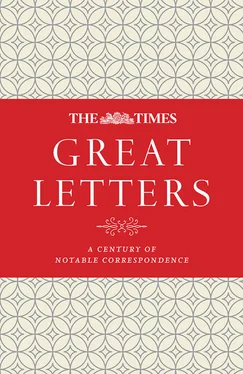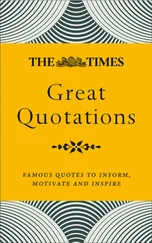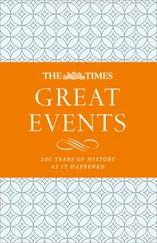Another woman had been made the victim of the unspeakable savagery of brutal and perverted lust. She also must have remained bound by the bonds of matrimony, enforced by violence, but that her husband went to satisfy his fury elsewhere, and was found out.
A third was deserted, after a week, by a soldier who went to the American continent, where he might have lived unmolested for ever in a life of peaceful adultery, but as he violated two children he also was discovered, and she was able to be free.
I could multiply the recital of individual cases, but lack of space forbids, and the general conditions need attention.
Bigamy was extremely common, but entirely confined to poor persons, for bigamy is not a vice of wealth; the rich can find other less illegal outlets for their emotions. The existing statute, however, provides that bigamy is not sufficient ground for divorce — it must be “bigamy with adultery” — and, though it might be assumed, anywhere outside a law Court, that a man who has risked penal servitude to obtain possession of a woman was not prompted by platonic love, yet the law requires independent proof of the adultery. Further, by a decision now sixty-five years old, this adultery must be with the bigamous wife — adultery with any number of other people is quite inadequate.
On the wisdom and justice of this ancient judgment I will not comment, but it throws great difficulty in the way of a woman who can prove that her husband has been convicted of bigamy, but finds it difficult to trace and obtain evidence of adultery; quoad hanc 1, in one case before me, she almost failed.
Among the poorer people desertion was the commonest event: rich folk walk more delicately, and, being in a hurry, obtain a decree for restitution, to be obeyed in a fortnight, instead of waiting two years. It was, of course, only in the rare instances where the deserting husband could be traced and his undoubted adultery legally proved that any relief would be obtained. In one such case the husband, who had first insulted and then deserted his wife, left the country in a ship with the woman with his affection for whom he had often taunted his wife, but, of course, that did not constitute legal proof of adultery, but merely companionship.
In no case that I tried did there appear to me the faintest chance of reconciliation; the marriage tie had been broken beyond repair and its sanctity utterly defiled; nor, again, though I watched with extreme vigilance, was there any single case where collusion could be suggested. With regard to cruelty, there was no case which a competent lawyer, skilled in the knowledge of witnesses, could not have tried.
I was, of course, faced with the question as to what is cruelty, which, we are informed, is so difficult that you want the King’s Proctor as an expert in cruelty to keep the law steady. I made my own rules. If a man who was sober kicked his wife in the stomach when she was pregnant, that seemed to me enough; if she were not pregnant, and he was drunk, he might have to do it again or else her complaint might be due to what the most persistent opponent of my Bill called “nervous irritation.” So, also, with kicking her downstairs, or making her sleep on the doormat in winter — all of which cases I had to consider. But, however brutal and repeated the cruelty, no divorce must be granted for it, or we shall Americanize our institutions and soil the sanctity of English homes.
I had no case before me involving the question of lunacy or criminality, for these, as the law stands, are irrelevant considerations in connexion with divorce; but the evidence on that is near at hand. Within the last few months two women have been left eternally widowed, with their husbands fast immured in criminal lunatic asylums, and in this unnatural state they will remain while the shadow of the years lengthens and life’s day grows dim. Surely the desire to help such people is not, as some appear to think, prompted by a Satan, but is a humble effort to carry out the principle of the supplication which asks that, while our own wants are satisfied, we should not be unmindful of the wants of others.
Parliament will shortly resume its work. Our divorce laws have been condemned by the most competent authority as immoral and unjust. The House of Lords has patiently heard every argument that can be advanced against further change from the lips of the most skilful advocates, and has repeatedly, and by emphatic majorities, demanded reform. Common sense — but for respect to my adversaries I should have added common decency — rejecting the existing law. Is it asking too much to entreat the Government to afford a chance to Parliament to cleanse our laws from this disgrace?
Yours faithfully,
BUCKMASTER
1In legal Latin, the sexual impotence of the husband
Viscount Buckmaster had been Lord Chancellor from 1915–16. Men were able to obtain a divorce on proof of a wife’s adultery, but women had to prove both a husband’s adultery and another reason, such as domestic violence. Despite Buckmaster’s efforts, the law was eventually reformed, largely at the instigation of AP Herbert, only in 1937.
* * * * * * *
The Spectacle of Respectable
8 February 1923
Sir, Is it not time that the official categories of respectability were revised?
In order to secure the renewal of a passport, it is necessary to obtain a signed declaration of identity and fitness from a mayor, magistrate, justice of the peace, minister of religion, barrister-at-law, physician, surgeon, solicitor, or bank manager, with whom the applicant is personally acquainted; and similar lists are found on many other official forms. On what principle they were compiled I know not, but they cause considerable inconvenience, and defeat their own end.
I never knew a mayor. But I have known many Civil servants of reasonable integrity, and in my neighbourhood are two or three not more unscrupulous than the rest of their profession; I am friendly with two editors; I know a peer; several stockbrokers, baronets, novelists, and Members of Parliament would readily swear that I am a fit and proper person to go to France. But these gentlemen are not worthy, and I am forced to search any casual acquaintance for magistrates and dental surgeons, who, in fact, know nothing about me.
For persons even poorer than myself the difficulty is more serious. As a rule, the only “respectable” people they know are the physician and the clergyman, and why should these alone be bothered with the things? Why not the policeman, the postman, the landlord, the tax collector? Things have come to a pretty pass in this democratic age if the word of an attorney is more than the word of a publisher: and if we cannot trust a policeman, whom can we trust?
The result, in most cases, is that the applicant obtains a solemn declaration from that one of his acquaintance who knows least about him. This is the kind of trivial official rubbish which is allowed to endure forever because no one thinks it worth while to protest. I therefore protest that these antiquated and offensive lists should be revised, as above, or, if that be too daring, abolished altogether. Why not simply “a householder”?
I am, Sir, yours faithfully,
A. P. HERBERT
* * * * * * *
Gathering Nuts in May
9 May 1923
Sir, I remember that, when I read the Classics, I had always a liking for the reading of the manuscript and a distaste for emendations. It is probably the same instinct which leads me to think that “nuts in May” are really nuts. (But I remember that, when I joined in the chant some forty years ago, we used to say “nutsimay,” and I liked the mysterious sound, and wondered what “nutsimay” was.) If nuts do not grow upon trees in May, I conceive it to be possible that they grow in the ground. Certainly one of my pleasantest memories is that of hunting for nuts in the ground (a long time ago) somewhere about the month of May. They were to be found on a little bank, overshadowed by trees, that overhung a disused quarry. You knew their presence by the tender green shoots which grew from them; and when you saw those shoots, you took your knife, made a small excavation, and had a succulent reward. I have consulted the New English Dictionary (my general refuge in all mental perplexities), and I have found there, s.v. groundnut, the admirable entry which awakens a pleased reminiscence and rumination. “Bunium flexuosum: Culpepper, English Physitian, 64; they are called earth-nuts, earth-chestnuts, groundnuts.”
Читать дальше












